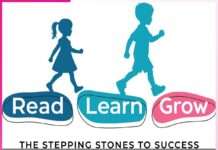The Role of Family in Shaping Career Choices
Introduction: Career choices are among the most critical decisions individuals make in their lives, influencing their personal satisfaction, financial stability, and overall life trajectory. While many factors impact these decisions, the role of family stands out as one of the most significant. Families often act as a guiding force, providing support, setting expectations, and influencing perceptions about various career paths. This article explores the multifaceted ways in which families shape career choices, the benefits and challenges of familial influence, and strategies to navigate it effectively.
Table of Contents
Family as the First Social Environment

Parents, in particular, play a pivotal role in shaping career aspirations. They often serve as role models, whether explicitly or implicitly, and their careers can profoundly influence their children’s career preferences. For example, a child raised in a family of doctors may view medicine as a natural career choice, not only due to familiarity but also because of the value placed on the profession within the family.
Direct and Indirect Influence
Families influence career choices both directly and indirectly. Direct influences include:
- Guidance and Advice: Parents and family members often offer advice based on their own experiences and perceptions of the job market. While this guidance can be valuable, it is sometimes limited by their exposure and biases.
- Financial Support: Families frequently finance education and training, which can directly impact the career paths available to individuals. For instance, families with greater financial resources may support a child’s ambition to pursue an expensive degree, such as law or medicine, while others may steer children towards more affordable options.
- Expectations: Many families set explicit expectations regarding the types of careers their children should pursue. These expectations are often tied to cultural, social, or economic factors, such as maintaining family traditions or achieving financial security.
Indirect Influences Include:
- Values and Beliefs: Family values—such as the importance of education, hard work, and ambition—shape a person’s attitude towards career choices. For example, families that prioritize education are more likely to encourage their children to pursue academic or professional careers.
- Environment: The family environment—including access to books, exposure to various professions, and discussions about careers—plays a crucial role in broadening or limiting a child’s perspective on potential career paths.
- Emotional Support: A supportive family can provide the emotional stability needed to pursue challenging career paths, while a lack of support may discourage risk-taking or ambition.
Cultural and Societal Context
The influence of family on career choices is deeply embedded in cultural and societal contexts. In collectivist cultures, such as those in many parts of Asia and Africa, family expectations often hold significant weight. Children may feel obligated to choose careers that align with their family’s desires, even if these choices conflict with their personal interests.
In contrast, individualistic cultures, such as those in the United States and Western Europe, often emphasize personal fulfillment and autonomy in career decisions. However, even in these societies, family influence remains a powerful force, particularly in professions with high social or financial prestige.
Benefits of Family Influence on Career Choices
Family influence can have several positive impacts on career decisions:
- Guidance and Mentorship: Families often provide valuable insights and mentorship, helping individuals navigate complex career landscapes. Parents or relatives who have experience in a particular field can offer practical advice, networking opportunities, and firsthand knowledge.
- Financial Stability: Families that support educational and career pursuits financially can open doors to opportunities that might otherwise be inaccessible. This support can alleviate the stress of student loans or other financial burdens.
- Motivation and Encouragement: A supportive family can boost confidence and motivation, encouraging individuals to pursue ambitious career goals. Knowing that one’s family believes in their abilities can be a powerful motivator.
- Cultural and Social Capital: Families often pass down cultural and social capital, such as knowledge of professional norms, networking skills, and access to influential contacts. These resources can give individuals a significant advantage in competitive fields.
Challenges of Family Influence on Career Choices
While family influence can be beneficial, it can also present challenges:
- Pressure to Conform: Families may pressure individuals to pursue careers that align with family expectations rather than personal interests. This pressure can lead to dissatisfaction and a lack of fulfillment in the chosen profession.
- Narrow Perspectives: Families may have limited exposure to diverse career options, leading to advice based on outdated or incomplete information. This can restrict an individual’s exploration of non-traditional or emerging fields.
- Conflict and Resentment: Differences between an individual’s aspirations and family expectations can lead to conflict, creating stress and potentially damaging relationships. This is particularly common in families with rigid cultural or social norms.
- Overdependence: Excessive reliance on family support can hinder an individual’s ability to make independent decisions or take risks, limiting personal growth and resilience.
Navigating Family Influence
To navigate the complex dynamics of family influence on career choices, individuals and families can adopt the following strategies:
- Open Communication: Honest and respectful communication is essential for understanding each other’s perspectives. Sharing aspirations and concerns can help bridge the gap between individual goals and family expectations.
- Exploration and Education: Encouraging exploration of various career options and educating family members about emerging fields can broaden perspectives. This is particularly important in rapidly changing industries, such as technology and sustainability.
- Seeking External Guidance: Career counselors, mentors, and advisors can provide objective guidance, helping individuals balance family influence with personal aspirations.
- Setting boundaries; Establishing boundaries between family expectations and personal decisions is crucial for maintaining autonomy. This involves respectfully asserting one’s right to choose a career path that aligns with personal values and interests.
- Building Resilience: Developing resilience and self-confidence can empower individuals to pursue their goals despite familial pressures. This includes learning to handle setbacks and standing firm in the face of criticism.
Conclusion
The role of family in shaping career choices is a complex interplay of guidance, support, and influence. While families can provide valuable resources and encouragement, they can also impose pressures and limitations. Striking a balance between honoring familial input and pursuing personal aspirations is essential for achieving both career success and personal fulfillment.
Ultimately, the most successful outcomes occur when families support their members in exploring and pursuing careers that align with their unique skills, interests, and passions. By fostering open communication, encouraging exploration, and respecting autonomy, families can serve as a positive force in shaping & fulfilling meaningful career paths.















































